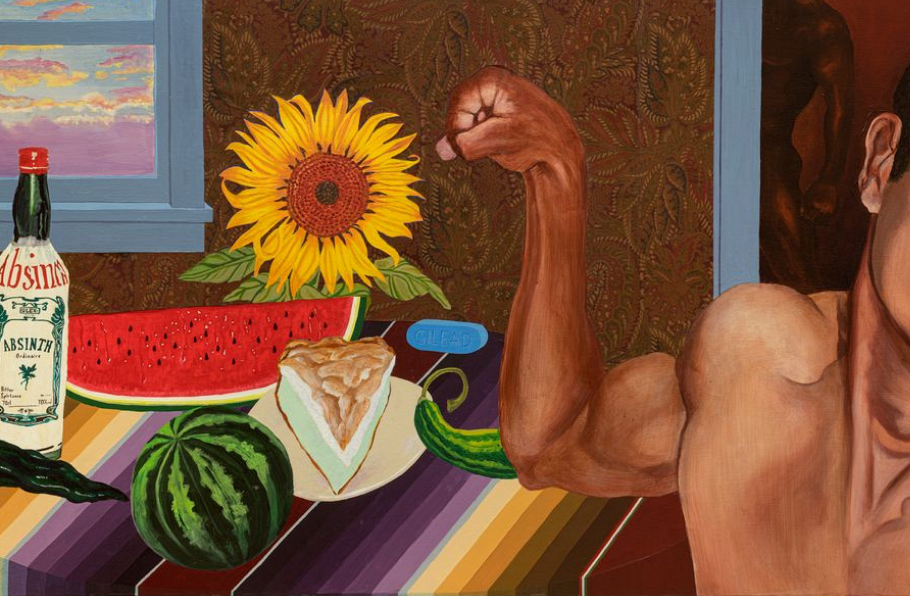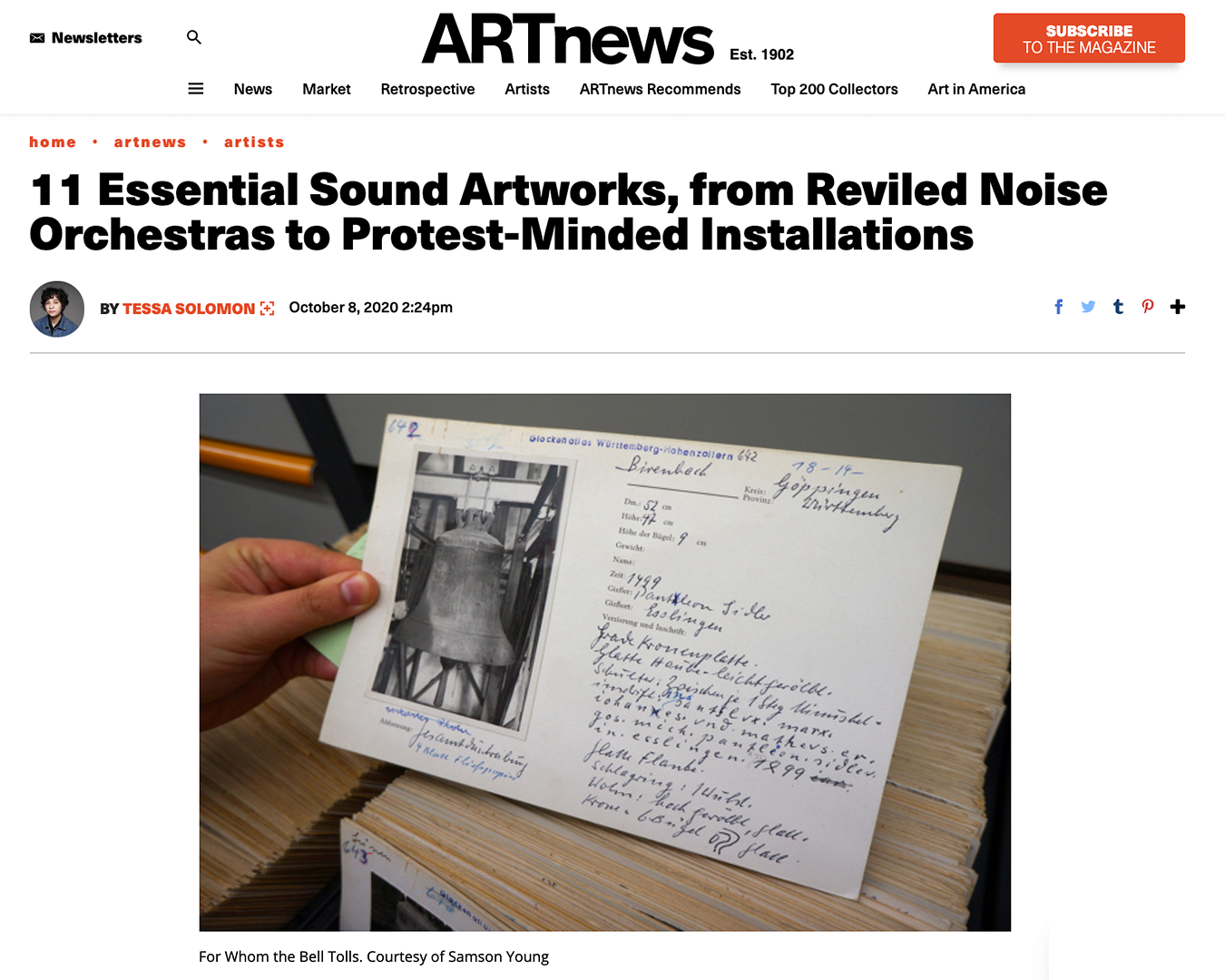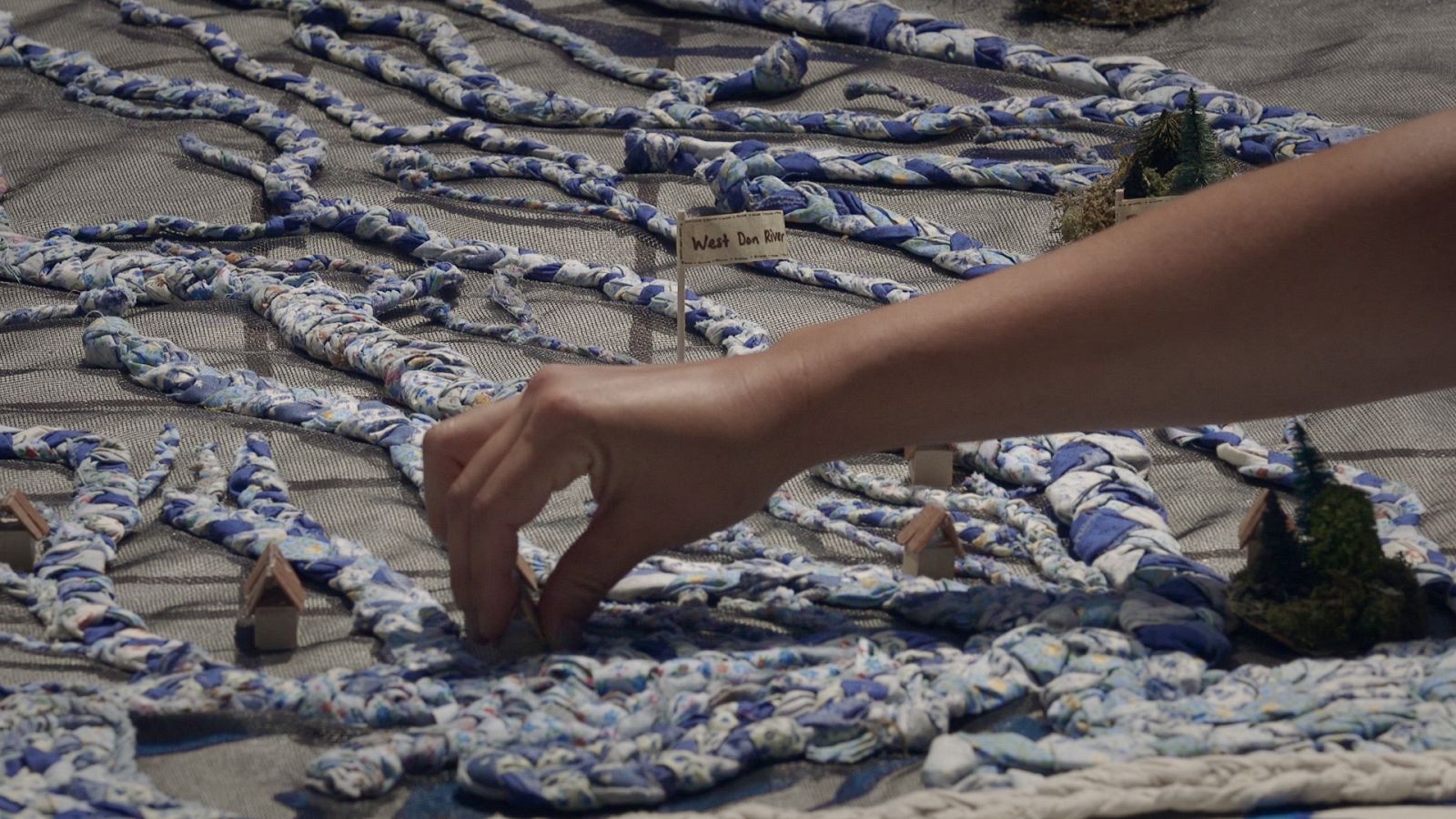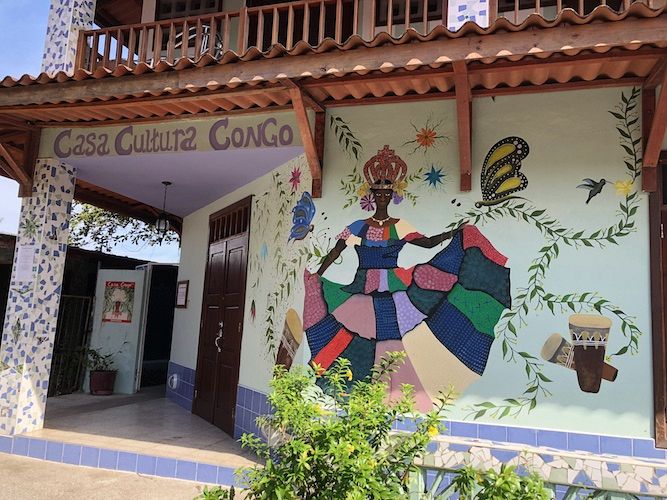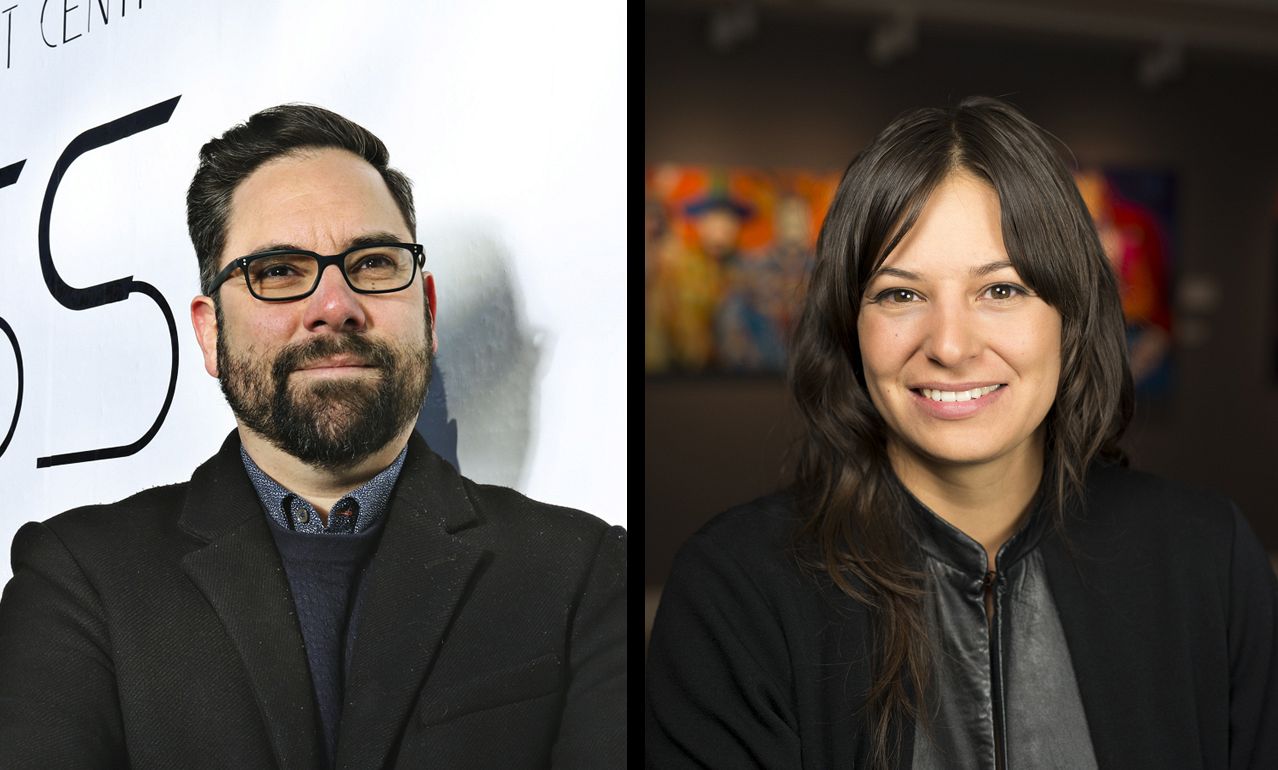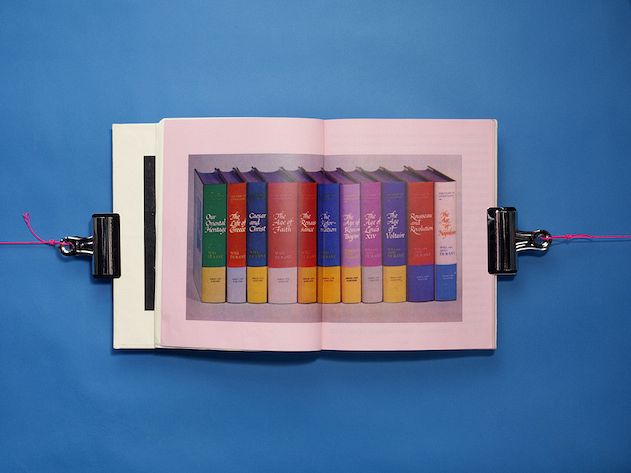In 1994 the artists Komar & Melamid commissioned a public-research polling firm to conduct The People’s Choice, the first poll on artistic taste in the United States. Individuals were asked approximately 100 questions on a variety of subjects, ranging from their consumer tastes and recreational activities to their knowledge of famous artists, and their preference for angles, curves, brushstrokes, and particular colors, sizes, content, and style in painting. As Russian émigrés, the artists were intrigued by the idea of the consumer-research poll as an outgrowth of American democracy. At the same time, their interest in democracy led the artists to ask what a genuine people’s art would look like. What is a democratic and populist painting?
Using the data collected in this survey, Komar & Melamid painted a pair of canvases, The Most Wanted and The Most Unwanted, including in each painting what the respondents said they wanted or did not want in a painting. The survey and the resulting paintings come from the artists’ interests in examining people’s underlying attitudes about art and what art might look like, while also challenging the faith that our society puts in statistics.
The People’s Choice was exhibited outside the United States and evolved into a global analysis of what people, defined by their nationality, look for in art. This exhibition brought together for the first time Komar & Melamid’s Most Wanted and Most Unwanted paintings from fourteen countries (China, Denmark, Finland, France, Germany, Holland, Iceland, Italy, Kenya, Portugal, Russia, Turkey, the Ukraine, and the United States). This exhibition presented these paintings, as well as the Web’s Most Wanted and Most Unwanted, and a reading room with statistical charts and other data along.



